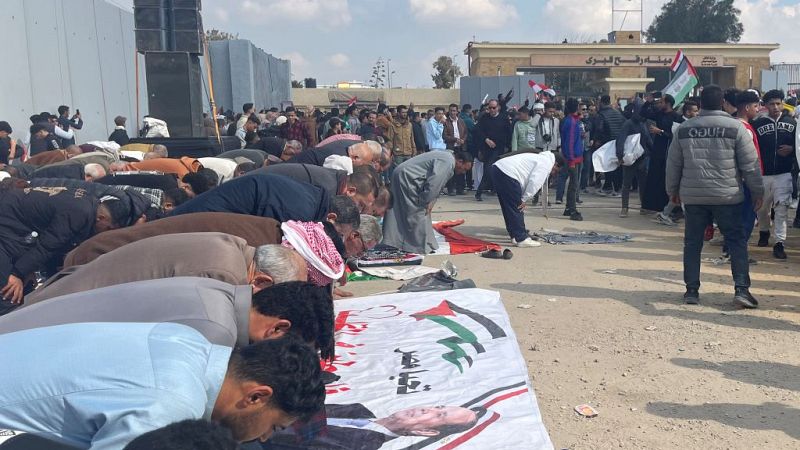Egypt rejects displacement, unveils Gaza reconstruction plan

Egyptian Foreign Minister Badr Abdelatty stated on Sunday that Egypt has a plan for the reconstruction of Gaza that does not involve displacing Palestinians from their land.
"We have a definitive plan for the reconstruction of the Gaza Strip that ensures no citizen is expelled from their homeland. Our vision is clear on this matter," Abdelatty remarked.
He made these comments during a joint press conference in Cairo with Djibouti's Foreign Minister Mahmoud Ali Youssouf, where he also welcomed Sudan's Foreign Minister Ali Youssef Ahmed and UN Senior Humanitarian and Reconstruction Coordinator for Gaza, Sigrid Kaag.
Djibouti's Foreign Minister Mahmoud Ali Youssouf expressed his support for the situation, stating that Djibouti aligns with Egypt's stance on Gaza and commends President Abdel Fattah El-Sissi's efforts toward achieving a ceasefire.
He echoed Minister Badr Abdelatty's remarks, emphasizing that the Arab position is unequivocal.
Youssouf asserted that a lasting resolution requires the establishment of a Palestinian state that coexists peacefully and securely alongside Israel, which is a fundamental and legitimate demand.
He firmly rejected any discussions regarding the deportation of Palestinians.
Abdelatty's remarks indirectly addressed US President Donald Trump's proposal that Egypt and Jordan should accommodate Palestinians from Gaza to "clean out the whole thing."
Both Egypt and Jordan, along with other influential regional powers like Saudi Arabia, rejected Trump's suggestion.
Abdelatty mentioned that Egypt is willing to host a reconstruction conference, emphasizing that rebuilding Gaza is a crucial step toward resolving the conflict through a two-state solution.
"We have a clear plan for reconstruction that does not involve relocating anyone from their land," he stated. "This is the initial phase that will pave the way for a credible political process leading to the establishment of a Palestinian state, helping to break the cycle of violence and aggression."
"The only solution is to initiate a political process, in accordance with international resolutions," Abdelatty added.
On Sunday morning, trucks were observed moving at the Rafah border crossing as the ceasefire agreement between Hamas and Israel continued to progress.
Palestinian health officials in Gaza reported that the long-closed Rafah border crossing with Egypt reopened on Saturday, allowing thousands of Palestinians in urgent need of medical assistance to cross.
Israeli forces closed the Rafah crossing in early May after taking control during an offensive in the southern city. In response, Egypt closed its side of the crossing.
The reopening of the Rafah crossing marks a significant development that strengthens the ceasefire agreement reached between Israel and Hamas earlier this month.
Israel decided to reopen the crossing following Hamas's release of the last surviving female hostages in Gaza. Rafah is the only crossing for Gaza that does not connect to Israel.
The initial six-week truce outlines the release of 33 hostages and nearly 2,000 prisoners, the return of Palestinians to northern Gaza, and an increase in humanitarian aid to the severely affected area.
Next week, Israel and Hamas are expected to begin discussions on a second phase of the ceasefire, which aims to secure the release of the remaining hostages and extend the truce indefinitely.
If no agreement is reached, the conflict could resume in early March.
Today

